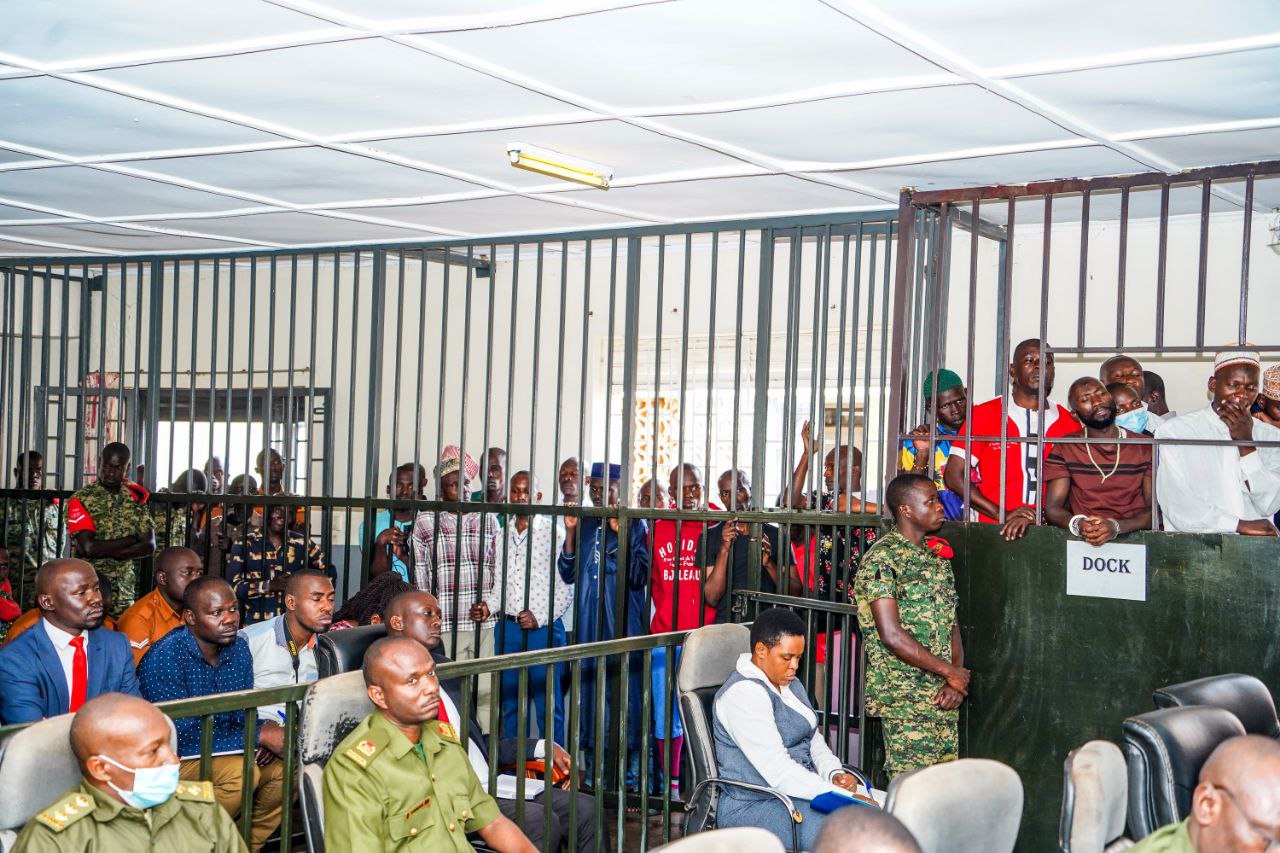Date: September 9, 2024
Today marks yet another appearance for Olivia Lutaaya and her 31 co-accused before the General Court Martial (GCM) of Uganda. The group, facing a range of charges, including alleged subversive activities, has been caught in a drawn-out legal battle that has now exceeded three years. Despite the gravity of the accusations against them, the Ugandan state has consistently failed to prosecute their case with the necessary evidence. As a result, the judicial process has stalled, and the detainees remain imprisoned without a final verdict, plunging them into desperation.
The failure of the state to prosecute the case within a reasonable timeframe is a direct violation of their right to a fair and timely trial. According to reports, the state has resorted to coercive measures, pressuring the accused to plead guilty in exchange for a possible release. Many have found themselves cornered, overwhelmed by the mounting uncertainty of their futures. Some, under immense psychological strain, have given in to the state’s demands, agreeing to plead guilty to charges that many argue were trumped up in the first place. These individuals have even gone so far as to change legal counsel, moving from independent defense lawyers to UPDF (Uganda People’s Defence Forces) lawyers, who are now handling their cases under the framework of a plea bargain.
A decision on this “plea bargain” is expected today, and it has become a pivotal moment for the accused. For those who have agreed to the terms of the deal, today’s proceedings could determine the length of their remaining prison time or the conditions of their release. However, it remains to be seen whether these individuals have had a change of heart since their last appearance before the GCM or whether they will continue to adhere to their guilty pleas.
Olivia Lutaaya: A Beacon of Resilience
Among the accused, Olivia Lutaaya has stood out as a symbol of strength and resistance. While many of her co-accused have buckled under the weight of the state’s pressure, Olivia has remained steadfast in maintaining her innocence. Her continued defiance has made her a rallying figure for human rights activists, who argue that the charges brought against her and the others are politically motivated, intended to silence dissenting voices in the country.
Olivia’s resolve contrasts sharply with the situation faced by other detainees. The mother of one of her co-accused, who has refused to plead guilty, expressed her heartbreak at the circumstances. “I wish he had also pleaded guilty if that’s the only way he will leave jail in the near future,” she said, reflecting the agonizing choice many families are grappling with—whether to encourage their loved ones to accept a plea deal, even at the cost of admitting to crimes they did not commit, or to continue fighting for justice, knowing that such a fight could lead to years of continued imprisonment.
The Political Backdrop: A History of Judicial Manipulation
This case is emblematic of a broader pattern of judicial manipulation in Uganda, where political opponents and activists have found themselves entangled in the legal system, often for extended periods, without resolution. Under President Yoweri Museveni’s regime, the General Court Martial has increasingly been used as a tool to prosecute civilians and suppress opposition figures.
The use of military courts to try civilians, a practice that has been widely criticized by international human rights organizations, violates international legal norms. The United Nations Human Rights Council has previously condemned Uganda for allowing military courts to handle civilian cases, particularly in politically sensitive matters.
The plight of Olivia Lutaaya and her co-accused has drawn comparisons to other high-profile cases in recent Ugandan history, where individuals were similarly coerced into guilty pleas after prolonged detention. In many instances, these individuals had no viable legal recourse, given the lack of independence within Uganda’s judiciary and the overwhelming influence of the state on court proceedings.
The Role of the Plea Bargain: A Double-Edged Sword
Plea bargaining has increasingly become a tool employed by the Ugandan state to expedite cases that are politically charged or difficult to prosecute. In theory, a plea bargain is designed to relieve judicial congestion and provide an alternative resolution to drawn-out trials. However, in Uganda, it has become a mechanism for coercion, particularly in cases involving political prisoners.
For Olivia Lutaaya and her co-accused, the plea bargain represents a double-edged sword. On one hand, it offers a path out of prison, potentially sparing them further years of legal limbo. On the other hand, it forces them to admit to crimes they may not have committed, thereby legitimizing the state’s narrative and undermining any future legal challenges they might have pursued.
The accused are trapped in a cruel bind: plead guilty and secure a release, albeit with a criminal record, or maintain their innocence and risk indefinite imprisonment. This situation reflects broader concerns about Uganda’s justice system, where prolonged pre-trial detentions and coerced confessions have become disturbingly common.
A Decision Looms
As Olivia Lutaaya and her 31 co-accused appear before the General Court Martial today, the world watches closely. Their case has become a microcosm of the broader struggle for justice and human rights in Uganda, where the state’s grip on power often leads to the suppression of dissent. The decision taken on their plea bargain will not only determine their individual fates but could also set a precedent for how future politically charged cases are handled in the country.
The resolve of individuals like Olivia Lutaaya serves as a reminder that even in the face of overwhelming pressure, the fight for justice continues. Whether she will continue her defiance or whether the unbearable weight of the state’s coercion will ultimately break her spirit remains to be seen. What is certain, however, is that this case will leave a lasting mark on Uganda’s legal and political landscape.
The international community must now ask itself: how much longer will such injustices be allowed to persist in Uganda?

